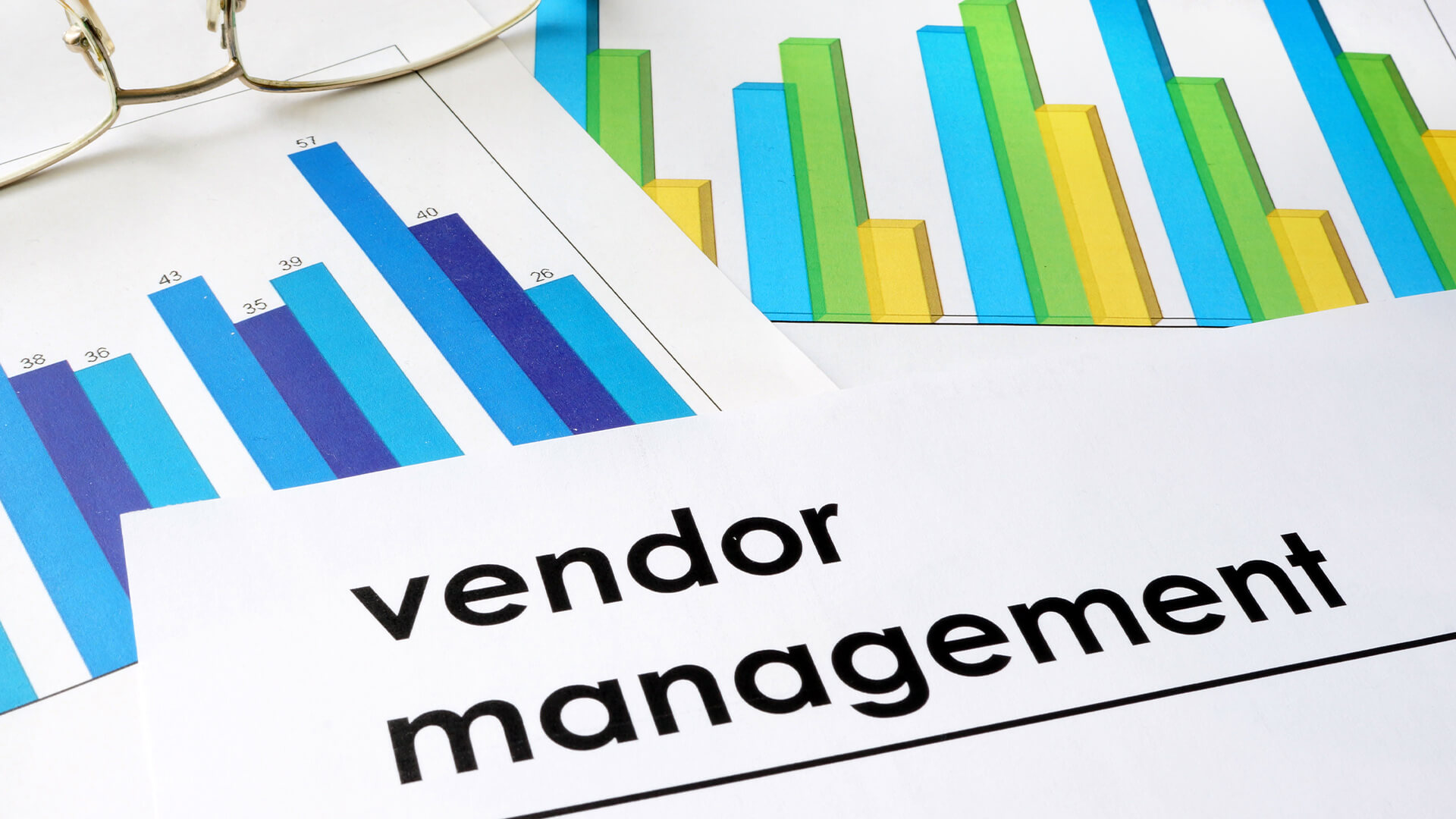
Vendors are often at the heart of an organization’s operations and activities. They accelerate the growth of your company, help achieve profit goals and generate sizable revenue.
In the past, procurement was a much simpler task involving the department that bought products and services.
Nowadays, a strategic procurement process is considered a crucial part of your overall business planning.
You need to adopt a judicious approach to maintain a cordial relationship with suppliers that would eventually benefit both the parties.
This is where vendor managers step in. They play a significant role in building sales and revenue by establishing strategic relationships with your company.
Since vendor management is still an alien concept in the business world, here we’ll try to highlight the benefits of an efficient vendor management system.
7 Reasons you need vendor manager for your business
Vendor managers serve as supply-chain experts, responsible for identifying qualified suppliers and ensuring proper communication between the vendors and the company.
They play a vital role in resolving conflicts between the two parties and establishing beneficial partnerships.
It requires a great deal of coordinated efforts and problem-solving skills to ensure smooth operations of hundreds of different vendors, all working with varying contract terms, pay rates, and points of contact.
Without a vendor manager, your company may end up paying more than the standard price for goods and services.
Besides, negotiations with vendors may come to a standstill if not handled deftly by seasoned vendor managers.
We’ve listed down some of the benefits of hiring a vendor manager. This may help you decide whether you need to recruit one. For a detailed analysis, you may refer to SaaS contract best practices.
1. Dilutes potential risks
Though vendors are imperative for revenue generation and company growth, there are certain risks associated with vendor collaboration.
They may cause violation of laws, company’s policies and internal processes.
Besides complying with laws specific to your company, vendors should obey common regulations such as GDPR and PCI DSS that spans across industries.
In case of non-compliance, your company may incur substantial penalties. This could dent your company’s reputation too.
Vendor managers minimize roadblocks related to regulatory compliance, cost implications, business reputation and its operations, thereby ensuring your company has a thorough understanding of these vendor risks.
Vendor management keeps track of your suppliers and furnishes data to help you identify and assess vendor risks.
You can classify vendors on the basis of the threats they pose to your business. It’s up to you to take urgent steps to mitigate such risks or choose another vendor.
Moreover, vendor managers carefully analyze supplier information pertaining to important aspects such as certifications, qualifications, past performance record, financial stability and many more.
This ensures you get a broader picture of the risk levels and make a well-informed choice.
2. Ensures better performance management
A systematic vendor management system presents an integrated view of the performance of all vendors associated with your company.
Such reviews ensure you gain a clear understanding of the shortcomings in the way your company is dealing with vendors.
Vendor managers conduct periodic assessment of your vendor’s performance, measuring it against the contract agreed upon by the two parties.
If a vendor’s actions are a complete departure from the clauses mentioned in the contract, that vendor won’t be able to meet your company’s needs.
Instead, such suppliers hamper company growth and weaken its performance.
The data generated by vendor managers to track vendor performance raises awareness about potential problems before they escalate into full-blown issues.
Once you know what’s working and what’s not working in the organization, it’s easier to come up with a strategy for eliminating these flaws and elevating the overall performance of the organization.
3. Minimizes overall costs
Managing vendors on your own can be quite a challenging and time-consuming process that may create workflow bottlenecks.
This, in turn, may severely impact your company’s financial profitability.
Vendor managers help you find cost-effective yet competitive vendors that meet the organization’s criteria and are in sync with its core values.
In the absence of a vendor manager, there could be a delay in handling vendor request processes which inadvertently would cause delay in vendor sourcing.
This could lead to wastage of time, resources and money especially when you’re trying to gather pertinent information for better vendor collaboration.
Thanks to vendor managers, you can now identify the hidden costs and control unnecessary expenditure.
Since vendor managers are in charge of establishing strong relationships with the suppliers, the goodwill comes in handy while negotiating rates for future purchases.
The vendors may oblige you with incentives and discounts, thus improving your company’s overall profit margin.
4. Builds long-term relationships with vendor
Vendor management ensures a long-lasting business relationship with all your vendors.
The primary step towards nurturing an effective vendor relationship deals with establishing and maintaining a connection.
Vendor managers are required to be in regular touch with vendors, sharing ideas and goals to make them feel included and accepted and an integral part of operations.
Suppliers may come up with some out-of-the-box business advice and suggestions. Without a vendor manager, it would be difficult to attend to these small but significant suggestions that would go a long way in cementing a strong relationship with vendors.
In any case, good vendors have become a rarity these days.
If you’re lucky enough to collaborate with good suppliers, you should leave no stone unturned to strengthen your relationship with them.
This would help build loyalty. The logic is simple.
The more effort you put in to work together, the more likely it is that vendors will stick with you during tough times.
Suppliers managers maintain an open channel of communication ensuring the two parties talk and resolve differences, even when the situation turns hostile.
Only when both sides understand their roles and responsibilities can you take a relationship forward and allow it to evolve into a long-term partnership.
Vendor managers act as an intermediary conveying these roles and responsibilities effectively to both the vendors and the company.
5. Improves administrative efficiencies
Vendor management systems can handle administrative efficiencies in an organized and efficient manner.
They function as a central hub for managing vendor master data and record tracking, you don’t have to worry about duplication of data, added labor costs, loss of data and contracts, operational errors and so on.
Now that you’ve one central place for supplier information, it’s obvious you’ll be able to tackle vendor relationships with ease and efficiency.
Moreover, a centralized view of the vendor status and other relevant vendor information facilitates a better decision-making process and saves valuable time.
6. Speeds up onboarding process
We often don’t take into account the time and resources needed to collaborate with new vendors and onboard them in compliance with the company’s policies.
If not done the right way, they could slow down productivity and cause monetary loss.
Vendor managers ease out the whole process.
Right from sifting through all the relevant information for each vendor, exchanging mails and setting up calls with vendors, verifying their authenticity to finally guiding them through the induction phase – vendor managers are there every step of the way.
They obtain critical vendor information pertaining to bank details, regulatory data, capability information and capacity details.
These are then entered into the system for further approval.
The onboarding process should be completed in a fast and efficient manner without compromising on your company’s rules and regulations.
A streamlined onboarding process allows vendors to be onboarded quickly. As a result, the procurement process gathers pace and the order fulfillment process gets optimized.
7. Upholds brand value
It takes years to establish a brand that resonates with your business. However, a few seconds of blunder can ruin everything.
After putting in your sweat and blood to create a company with a lot of value, you certainly do not want to allow an unethical or an unprofessional third-party vendor to tarnish it.
Vendor management program collects and passes on crucial information regarding the social and environmental standards maintained by a vendor.
This serves as a preventory exercise to avoid violations of laws and regulations from the vendor end or to discontinue interactions that are not in sync with the standards laid down by your company.
Even a small negligence or data breach could lead to loss of revenue and reputation.
In such a scenario, vendor managers take prompt action to reduce the risks of an incident that may arise due to the vendor’s actions.
Conclusion
In the age of globalization, companies are looking beyond geographical and economic barriers to work with different types of vendors from anywhere in the world.
Irrespective of the number of vendors you’re collaborating with, you need to have proper vendor management in place.
Believe it or not, your vendor’s performance has a bearing on your company’s performance and any negligence on their part can adversely affect your business.
The benefits mentioned above will help you design an effective process that will determine how you engage with vendors, thus bringing about a fruitful association between the two.




















